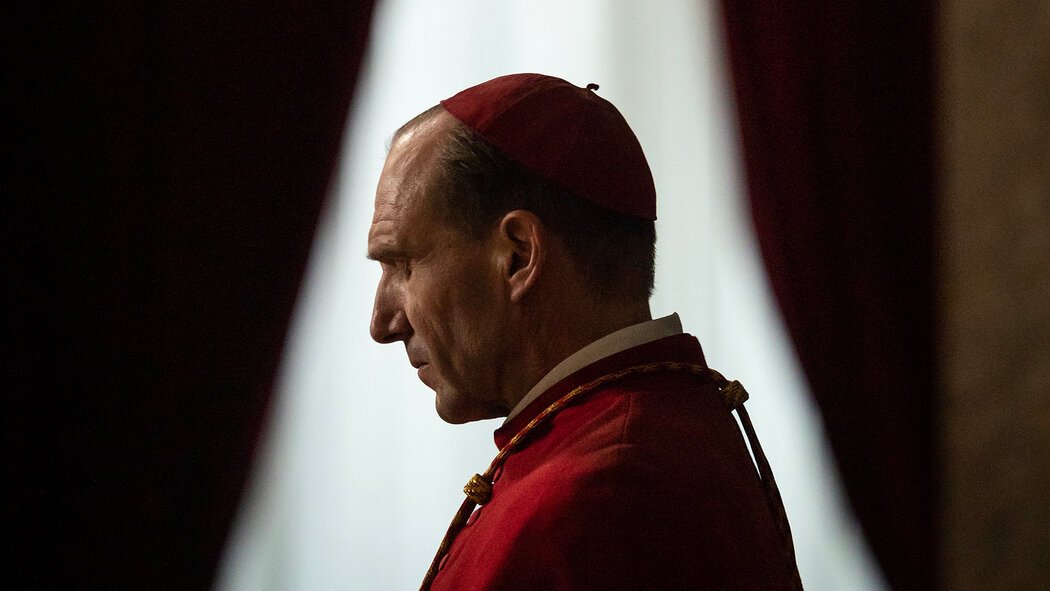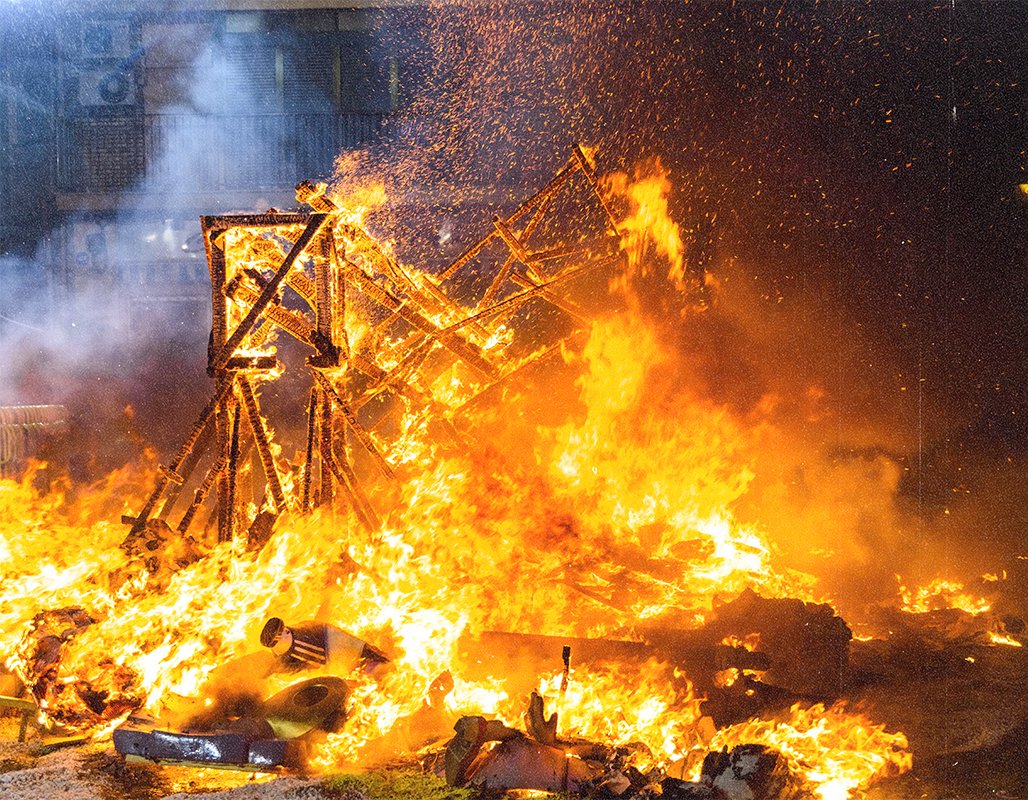No products in the cart.

Conclave Is Secretly More Queer Than Meets The Straight Eye
Edward Berger’s Conclave is an overall slow-burn thriller set in the Vatican, where a group of cardinals meets to choose a new pope, after the reigning one passes. At first glance, it might seem like a story about power, tradition, and faith with no obvious LGBTQ+ elements. But if you look closer, you’ll find hints of queer themes in the subtleties of the movie.
The film is about a conclave, which is a gathering of these important men, who are surrounded by secrets and rituals. It’s easy to think of it as just a very male environment, but there’s more to it than that. The story goes deeper into the complex feelings and relationships between the characters. The way they look at each other and the power games they play can lead to interesting thoughts about what might be happening behind the scenes.
The strength of Conclave isn’t in what it openly tells you. It’s in the things you have to read between the lines. There are moments when the characters’ emotions and desires seem to show through, even though they’re trying to hide them. This makes the movie a great place to think about how people express themselves when they’re in a very strict, religious setting.
The movie doesn’t tell a secret love story between the cardinals, but it does show how love and other strong feelings can exist in such a controlled place. It asks questions about what happens when people have to keep their true feelings hidden because of religious rules. By looking closely at the hidden parts of the movie, we can see a much richer and more complex story.
This film might really connect with LGBTQ+ viewers because it’s about finding ways to show love and loyalty in a place that doesn’t make it easy. It gives us a new way to think about power, faith, and what it means to be human. So, don’t be too quick to write it off as just a movie about straight men in the church. There’s a lot more to it than that.
Queerness in the subtextual silence

A queer interpretation of Conclave doesn’t rely on direct statements, but rather on the clever use of subtext. The film shows unspoken feelings and tensions through small gestures and well-crafted scenes. Take the relationship between Cardinal Lomeli, played by Ralph Fiennes, and Cardinal Bellini, brought to life by Stanley Tucci. At first, it seems like a professional rivalry, but it evolves to reveal a strong affection and shared past. This “bickering besties” dynamic has a sharper edge in this context, suggesting a connection built over time and maybe even unspoken desires.
The casting of Tucci and Fiennes, both of whom have strong connections to the LGBTQ+ community, adds more to the story than it takes away. Their performances bring a queer sensibility to their characters, prompting viewers to think about the unspoken aspects of their relationship. This isn’t just about the actors’ personal lives; it’s about the cultural significance they carry on screen, which resonates with queer audiences. Conclave taps into the long tradition of queer subtext in films, using coded messages and subtle gestures to convey emotions and desires that can’t be expressed openly.
In summary, the film uses an understated approach to hint at a queer narrative, relying on the audience’s interpretation of the characters’ interactions. The casting enhances this by bringing in the actors’ own queer associations, which enriches the viewing experience for those looking for it. This subtle storytelling is part of a larger tradition in cinema where hidden meanings are conveyed through hints and symbolism.
The Church is a complicated space
Conclave is set in the Catholic Church, which has a complex relationship with the queer community. Sometimes, the Church condemns them, but it also provides a haven for some. For many queer individuals, the priesthood is a way to avoid societal norms like marriage and family. They can live a life focused on celibacy and faith instead.
In the film, the Vatican becomes a smaller version of the larger world’s tensions. It looks at themes like hiding feelings, giving things up, and the battle between personal wishes and religious duties. The cardinals are humans with their own weaknesses and secrets, and the intense situation of choosing a new Pope brings these issues to light. It makes us think about how faith, power, and sexual feelings can mix in surprising and conflicting ways.
Conclave asks if you can truly have religious devotion and same-sex attraction at the same time. It doesn’t give a simple answer, but it does make you think deeply. It shows us the private struggles of these powerful men, leaving us to decide for ourselves. The movie doesn’t try to be fancy, but it does make you think.








POST COMMENT